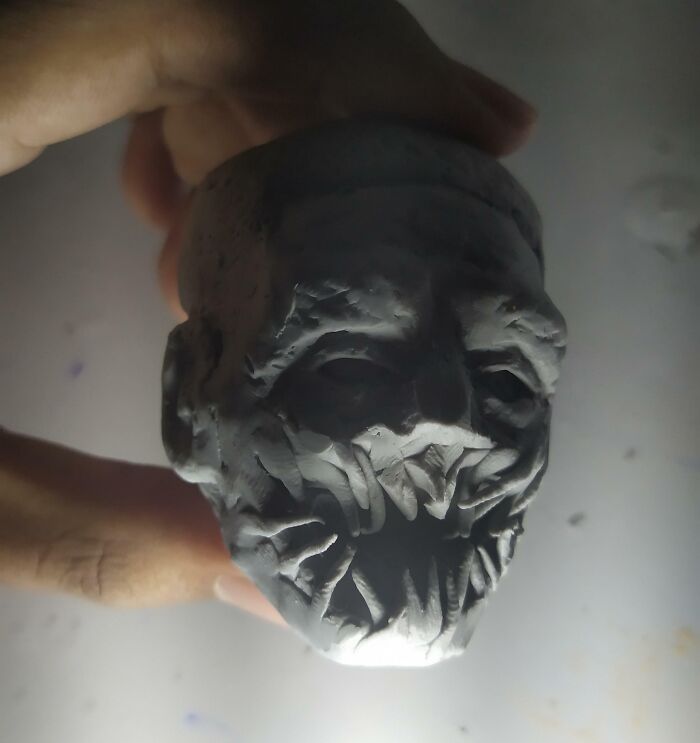Viewing certain things on the internet feels like witnessing a horrible accident—you want to turn your eyes away, yet for some reason, you simply can’t. Be it a horror movie or a picture of a fashion disaster, it might be difficult to explain why people are often drawn to the scary things in life.
An impressive collection of horrifying images can be found on the subreddit fittingly titled ‘Creepy’. Created “for all things creepy”, in their own words, the community shares everything from eerie doodles, to paintings, pictures, and other types of visuals. We have gathered some of them here today for you to browse, but do it at your own risk—some of them can be pretty disturbing.
In order to better understand how viewing creepy content affects us and why we do it, Bored Panda turned to Adjunct Associate Professor of Neurology at Indiana University, neuroscientist Shirley M. Mueller, who was kind enough to answer a few of our questions. You will find her thoughts in the text below.
This post may include affiliate links.
I Made A Fairy Mummy For My Sister For Christmas
A Polar Bear Following Photographer Paul Souders From Under The Ice
Someone Took A Photo At The Exact Moment A Mosquito Flew Past The Camera
Created back in 2009, nowadays, the r/Creepy community has nearly 15 million members. It is safe to assume that they enjoy the rather bizarre content fellow redditors share, but some netizens might be boggled as to why that is.
“Sensation-seeking is a common motivation for individuals to pursue horror and disgusting material,” Adjunct Associate Professor of Neurology at Indiana University, neuroscientist, and author of Inside the Head of a Collector: Neuropsychological Forces at Play, Shirley M. Mueller, told Bored Panda during a recent interview.
“We have different levels of need for sensation-seeking inherent in our personalities,” she suggested. “Along these same lines, people with low empathy tend to gravitate toward horror more than those with high empathy.”
"Nt|tld", Made By Xrev_v (Me)
"Small Death" (Carved From A Single Piece Of Wood, Before 1519)
A piece in Business Harvard Review about why we love or hate horror seconded the idea that experiencing stimulation is one of the main reasons we consume seemingly dreadful content. It also suggested that exposure to it—or sometimes even the anticipation of it alone—stimulates us in opposing ways, as it might make us feel scared or anxious, but it can also make us excited in a way. The reason for that is the biochemical reactions that happen in our bodies during fear-inducing moments—we release adrenaline, which results in heightened sensations and surging energy.
Bunny Statue At My Mom's Senior Center
Aren't Ya Gonna Come Down? (Digital Edit)
Nuclear Shadow, Nagasaki
“[Viewing creepy images or watching horror movies] makes the ordinary person fearful and gives them a shot of adrenaline. The amygdala, known as our fear center, is active in this case. Without it, however, individuals could well be resistant to fear,” Shirley M. Mueller told Bored Panda.
“For example, a 44-year-old otherwise normal woman with bilateral amygdala injury was less fearful than others in regard to fear conditioning. She also showed impaired recognition of fear in judgment of faces and social-related fear. The pièce de résistance was that she also was repeatedly immune to horror in films.”
The Art
Altered Thrift Shop Artwork (By Me)
Gruß Vom Krampus
Another reason we might seek something horrendous, according to Business Harvard Review, is gaining novel experiences; for instance, reading about the main character’s spine-chilling adventures and taking part in them vicariously. Not only does it allow us to go on all sorts of adventures, it lets us do it without having to deal with any actual dangers; we can safely explore the dark paths of the human mind, which is another reason people tend to view such content.
An Iris Growing Over Pupil
Photo Printer At Work Had A Ribbon Malfunction
Infestation
Neuroscientist Shirley M. Mueller also discussed the complexity of the push-pull effect creepy content often has. “Winfried Menninghaus and colleagues at German, Norwegian, and Netherlands scientific institutes tackled this issue. They came up with the Distancing-Embracing Model to explain the intense emotional involvement that can be felt when experiencing what some would term disgusting. Their model broadens the area of art that might be considered on the dark side; for example, Marcel Duchamp’s urinal or some of Lucien Freud’s paintings of naked obese individuals, etc.”
19th Century Hydrocephalic Foetus Skull, Royal College Of Surgeons Museum, Edinburgh
My Boyfriend Said My Art Would Suit This Sub
An Angler Fish Recovered From The Depths
“The distancing effect relates to a potentially distasteful scene or object portrayed as art,” Mueller continued. “In this way, the offending stimulus is kept at a safe distance, so personal safety is not an issue, and the viewer can turn away at any time. This sets the stage for the second part of the Distancing-Embracing Model: embracing the object.
“The paper's authors describe this as ‘rendering art reception more intense, more interesting, more emotionally moving, more profound, and occasionally more beautiful.’ In brief, Menninghaus and colleagues say that simultaneous positive and negative emotions can help integrate negative feelings into a pleasurable sensation.”
"Home Bodies" Illustration By Me, Inks On Photograph
A Painting Of My Sister
Paleman 3D Pumpkin Carving!
Keeping the offending stimulus at a safe distance is a crucial part of what makes certain negative emotions a pleasurable sensation. Harvard Business Review covered that deriving pleasure from consuming horror can only be possible under certain circumstances, the first one being the need to know that we’re physically safe.
Haunted? Maybe
One Of My Favorite Mummified Fairies So Far
The Veiled Virgin (Digital)
The safety frame is accompanied by a protective frame related to whether we can psychologically detach from a horror experience; for instance, reminding ourselves that whatever horrible thing we just saw happen on TV was acting, not real life.
The two are also linked to the third component—confidence in controlling and managing the dangers we face; for example, being sure that we can leave the haunted house whenever we want or that we are able to win against that horrifying-looking competitor.
Skull Of Mary Magdalene
Thanks To My Meds I’ve Been Having Nightmares. Decided To Paint A Recurring One
Now Bro Is One Of Them
The ‘Creepy’ subreddit has been around for over a decade now; and with plenty of people interested in the somewhat disturbing images it shares, it’s pretty safe to assume that there’s going to be plenty of content coming up. But if you’re eager to view more now, check out our previous edition on r/Creepy here.
Evil Days
Artwork By Brian Csati (Oil On Panel)
Don The Eldritch Entity I Made
Ritual Demon From My Nightmares That I Made
Hollllll, Oil Painting By Me
"Return The Slab", King Ramses Leather Bookmark, Me
I'm Sorry Jon (By Rojom)
Bunnyland Photos By Russian Photographer Alena Belijakova
A Personal Hatred, Me, Ink And Acrylic, 2023
Gargoyles
The Neighborhood Forest Has A New Greeter
My Daughter Through The Baby Monitor
Took me a horrifying minute to figure out it was somehow the back of her head.
I Feel Like My Latest Creation Belongs Here
Artwork By Brian Csati (Oil On Canvas)
Thank you, my nightmares are going to be much more entertaining now 🙂
Thank you, my nightmares are going to be much more entertaining now 🙂

 Dark Mode
Dark Mode  No fees, cancel anytime
No fees, cancel anytime 




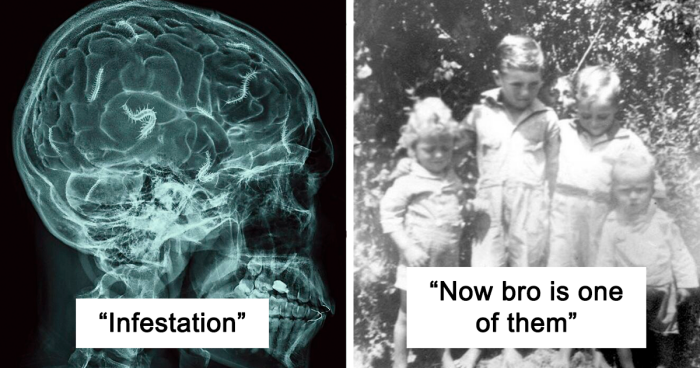



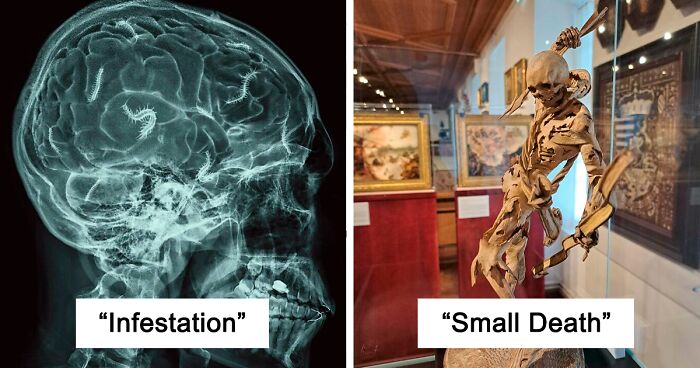

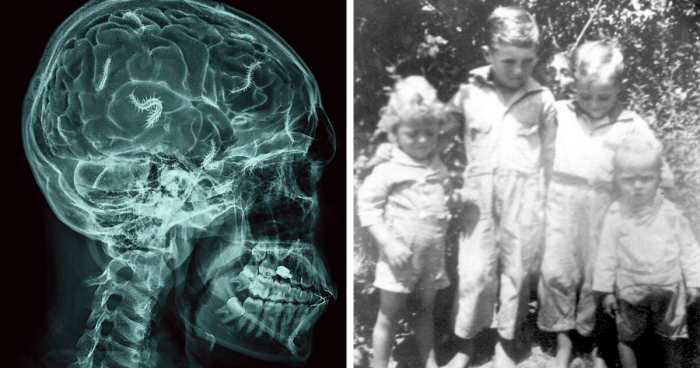

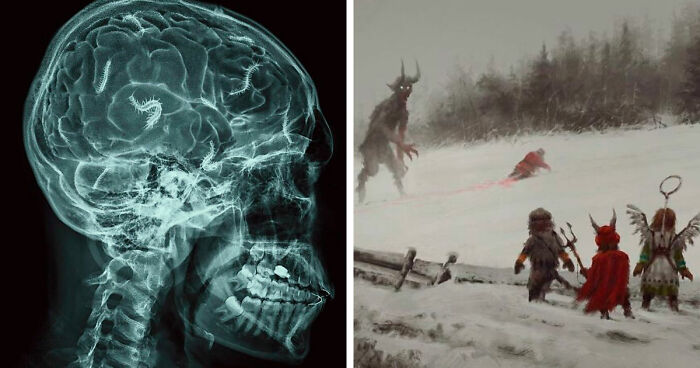

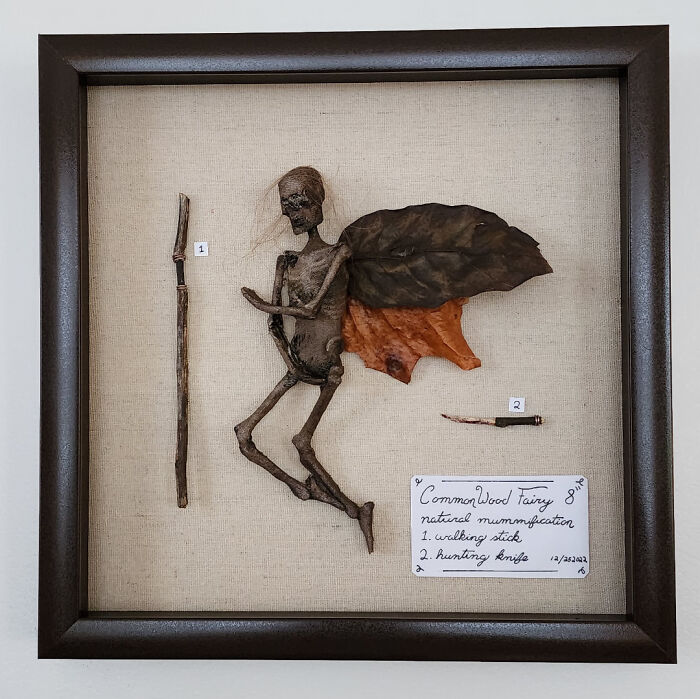

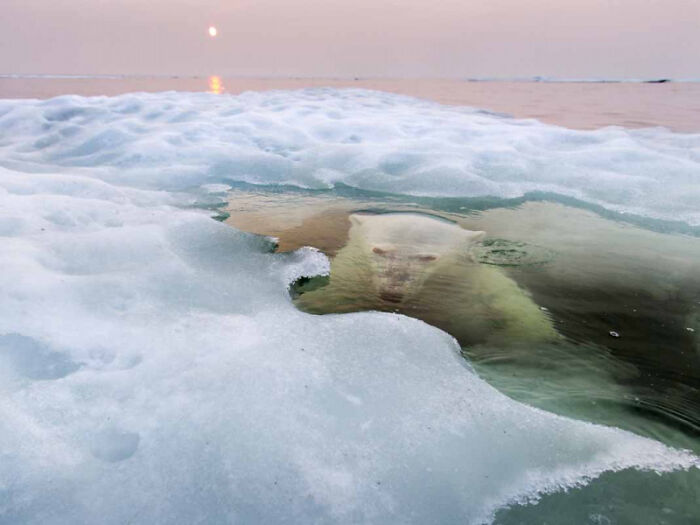
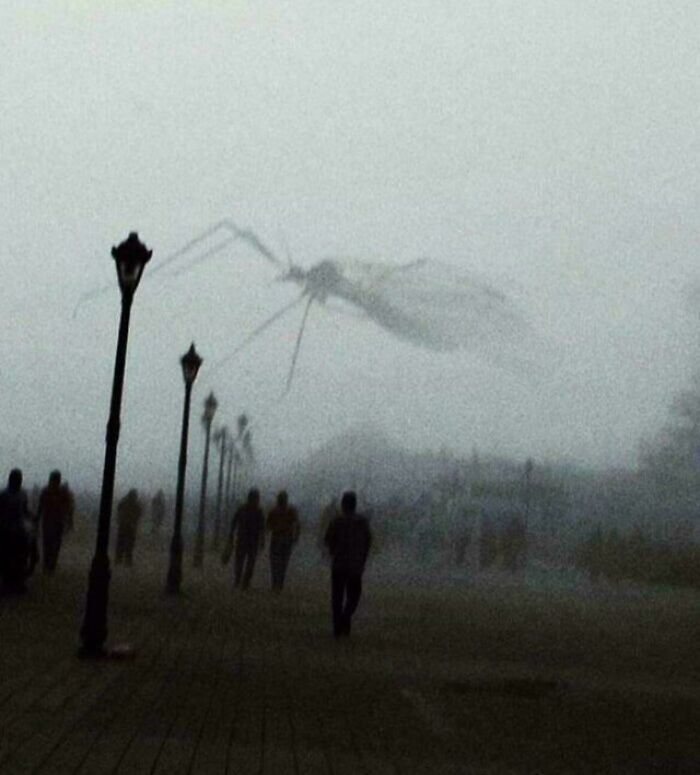
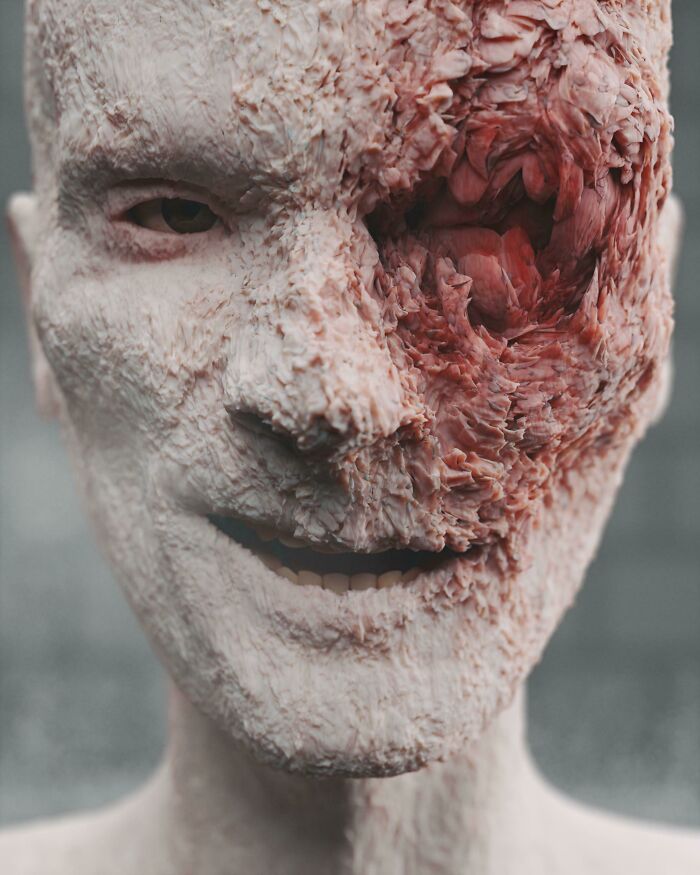
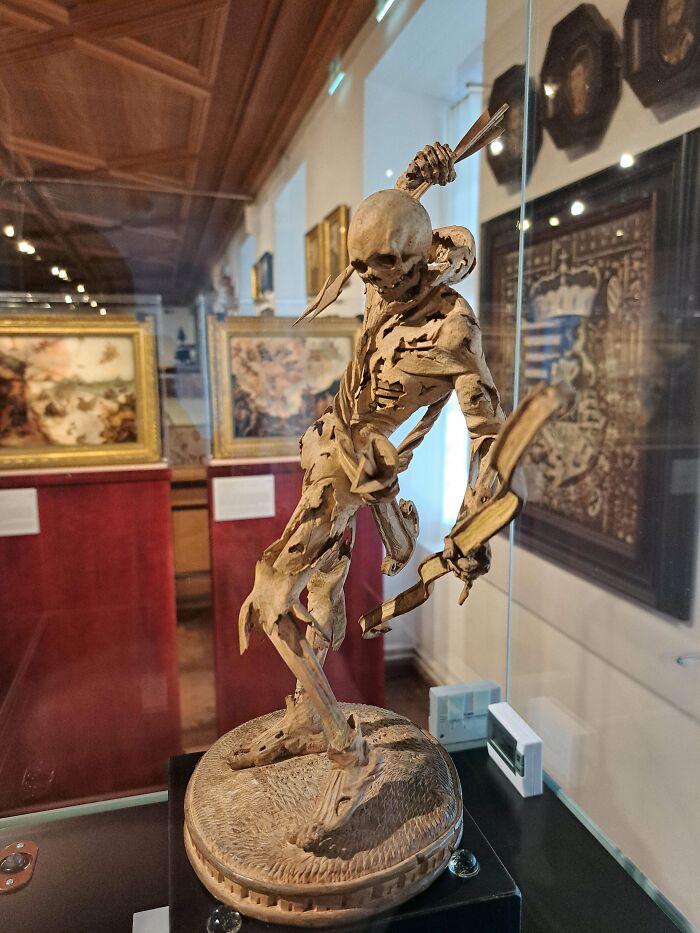
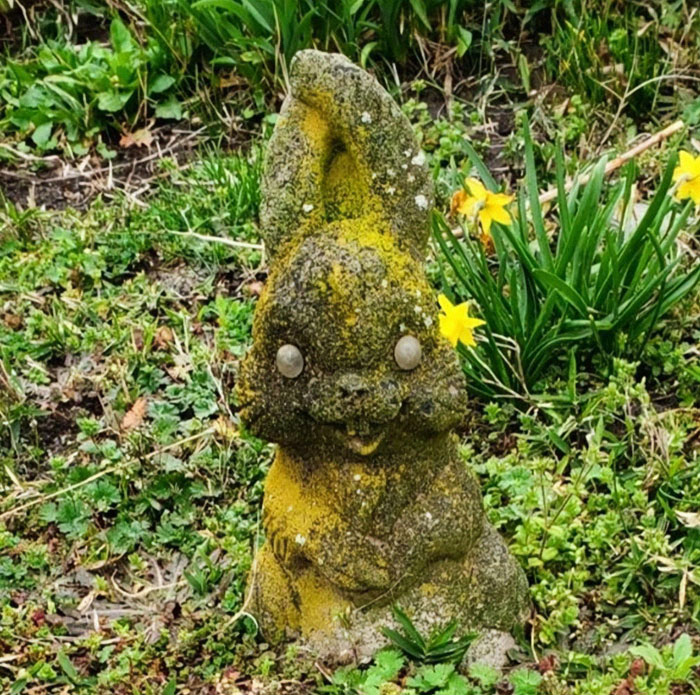
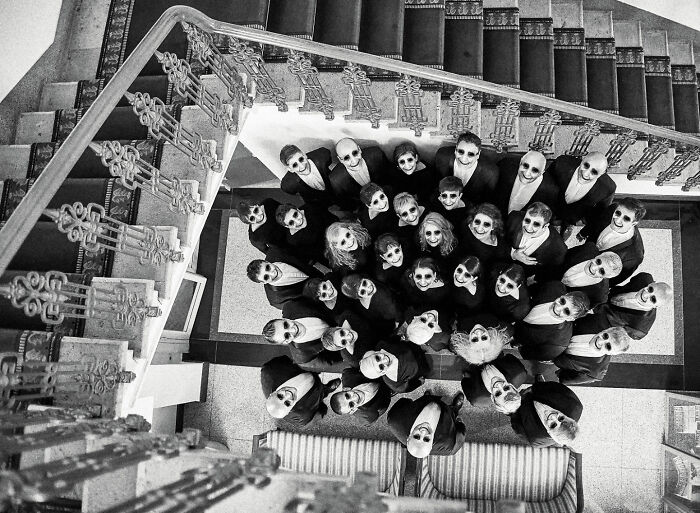
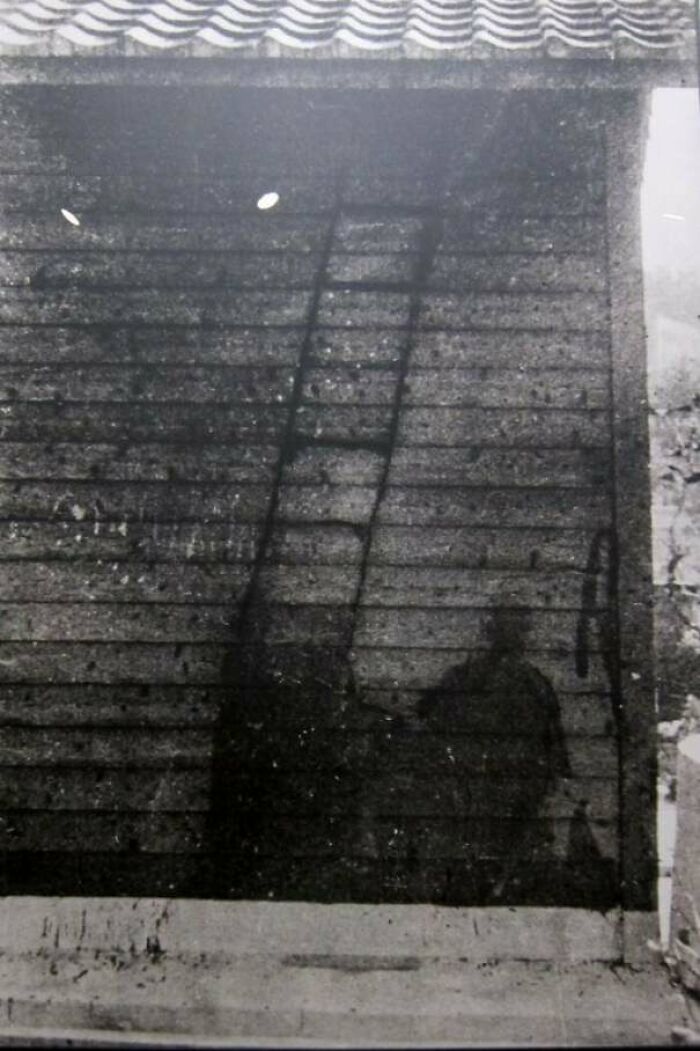
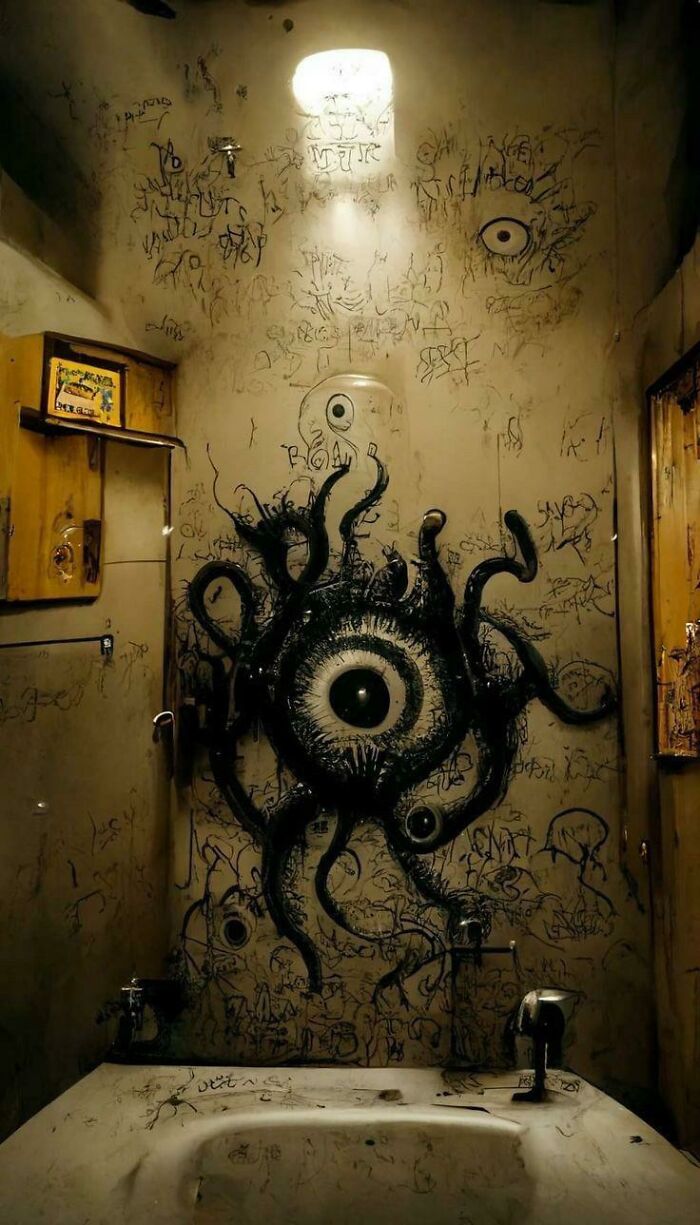
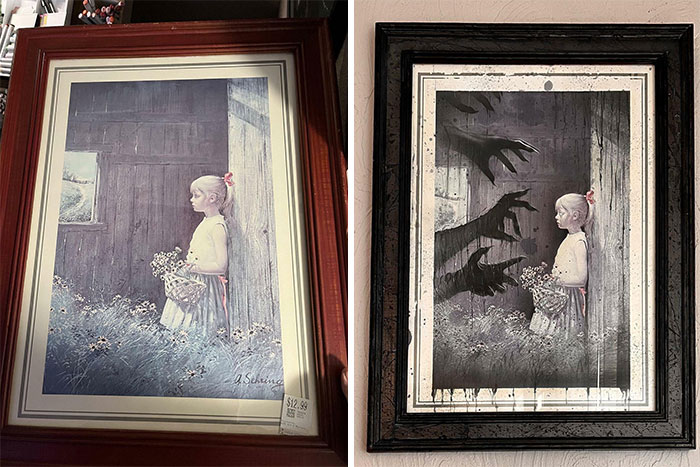
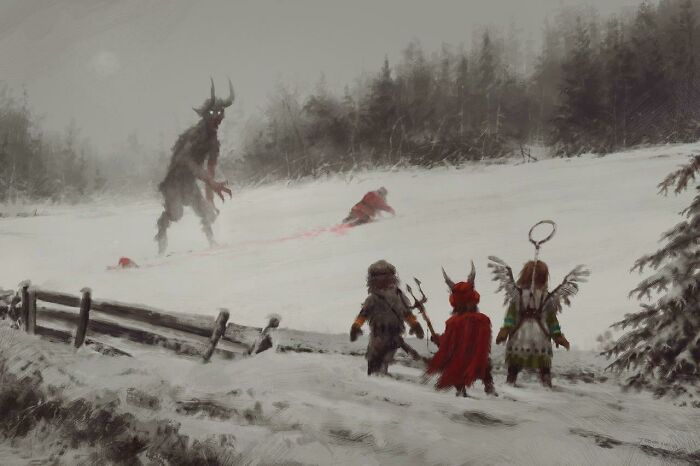
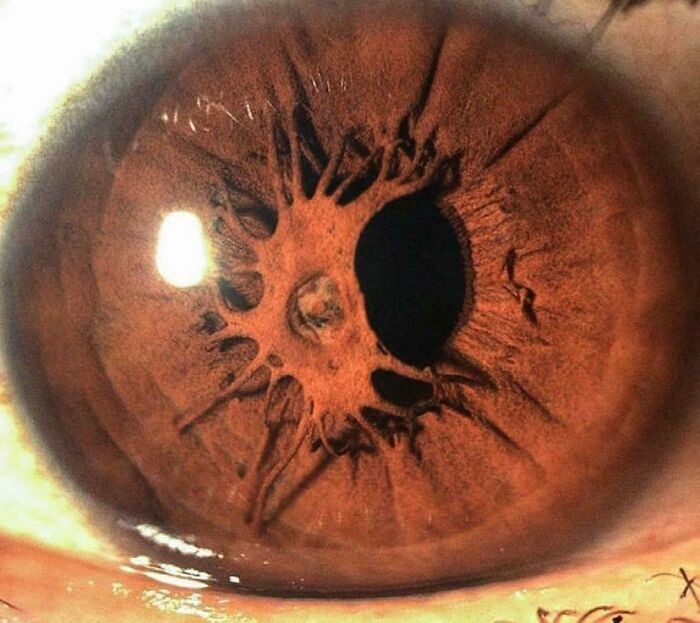
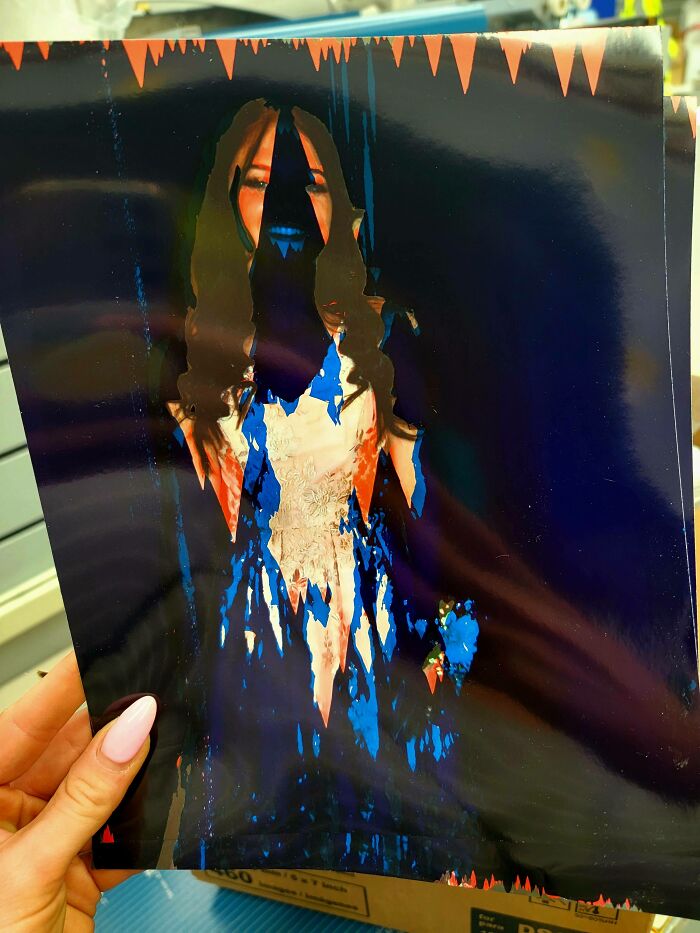
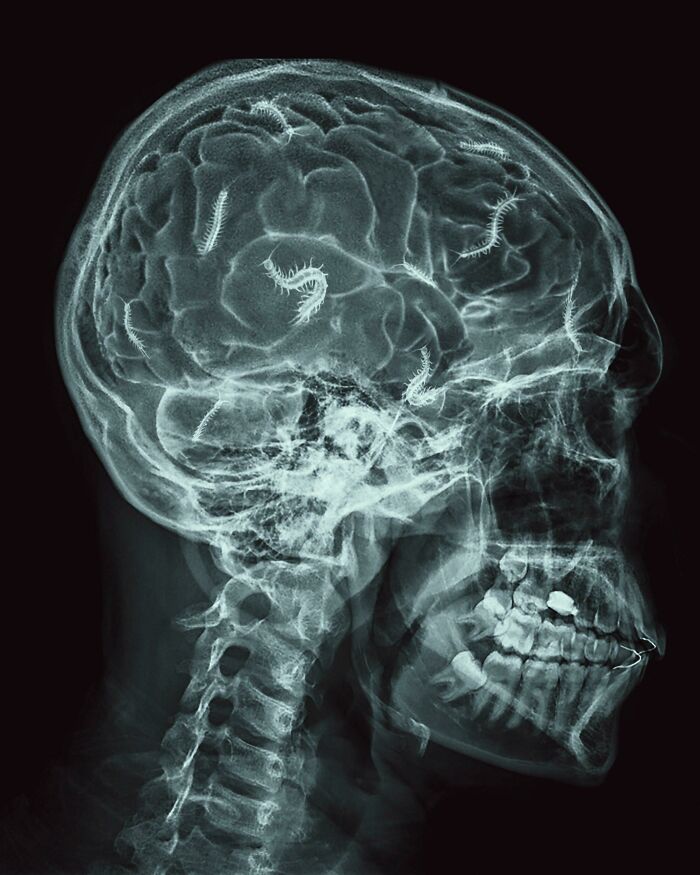
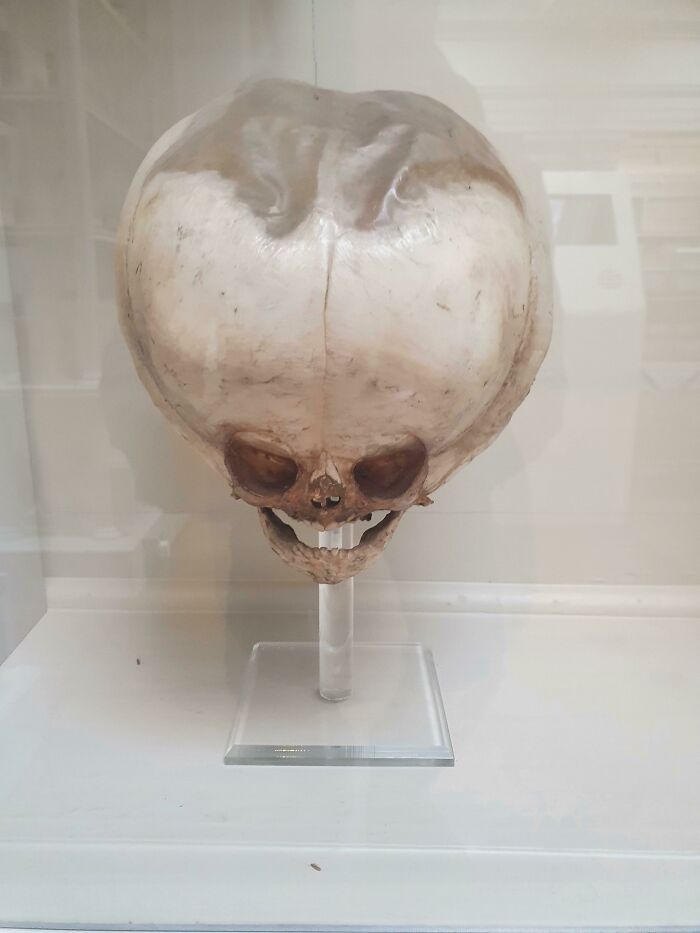
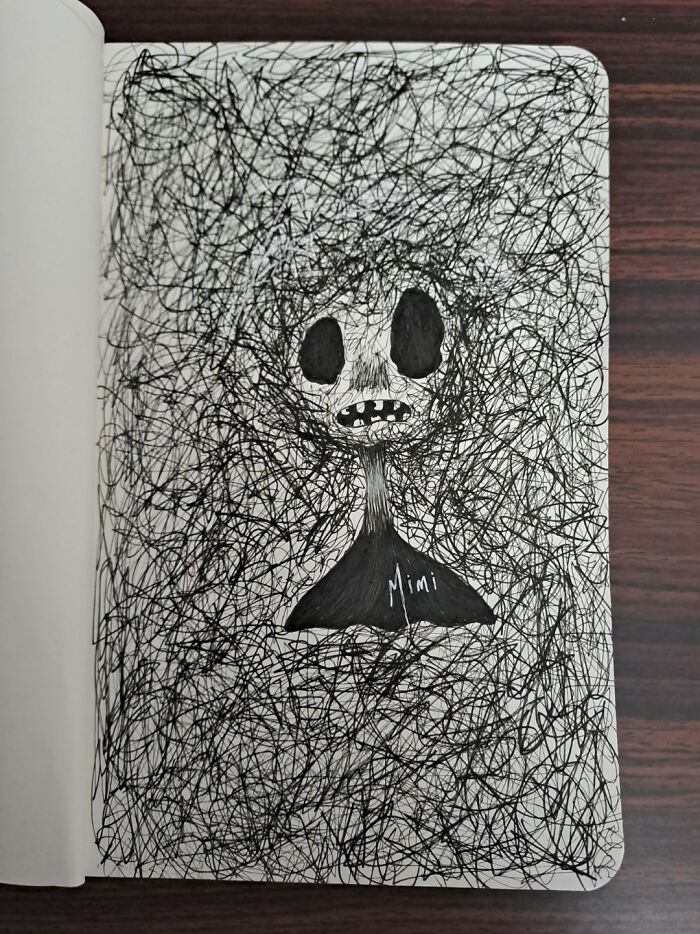
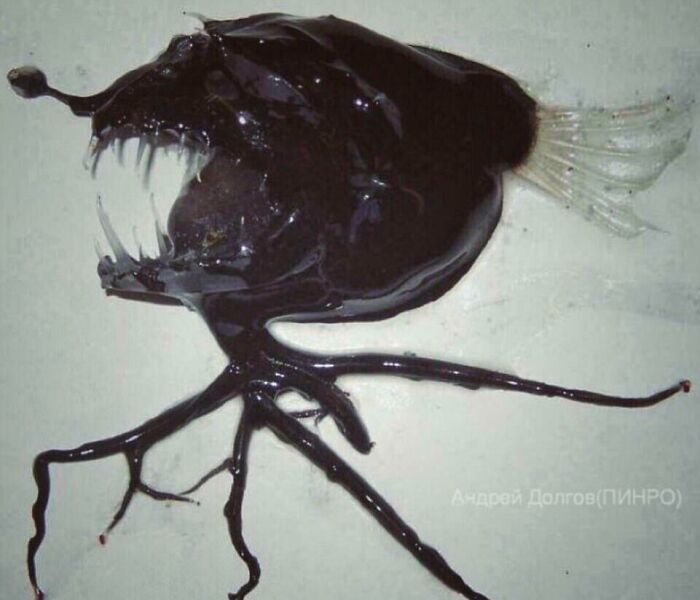
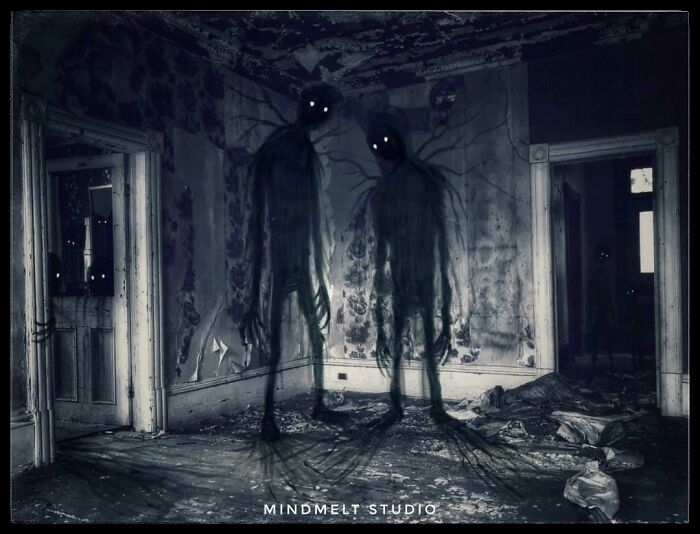
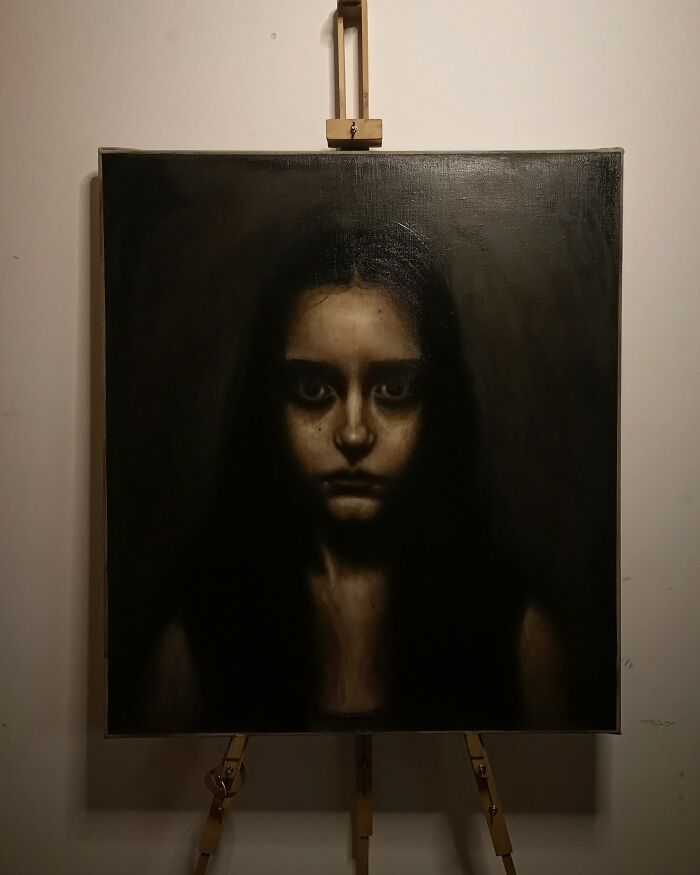
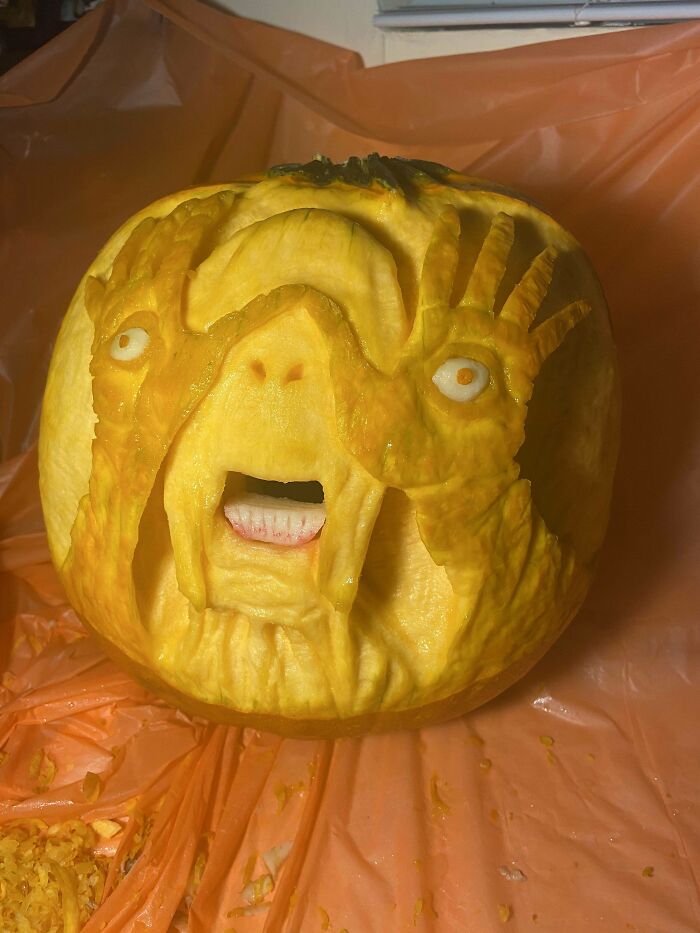
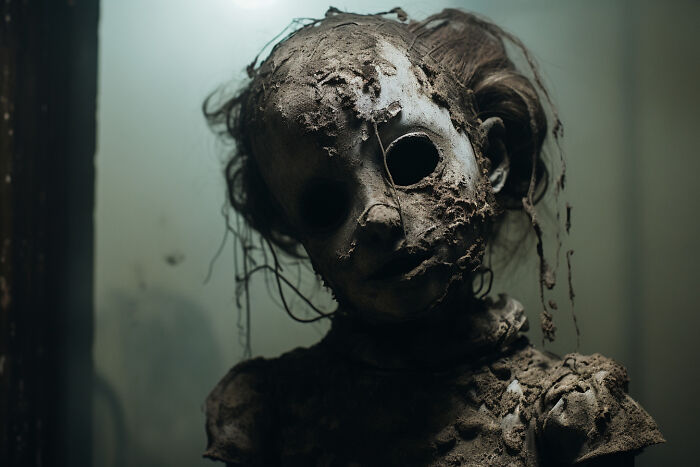
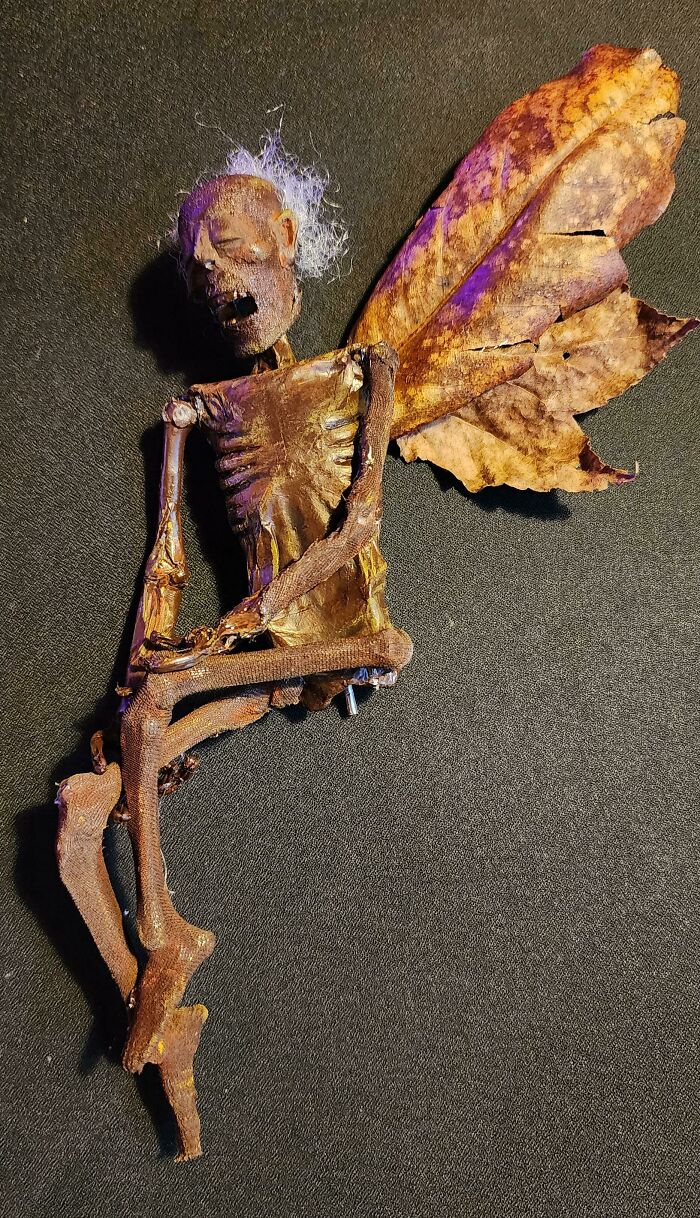
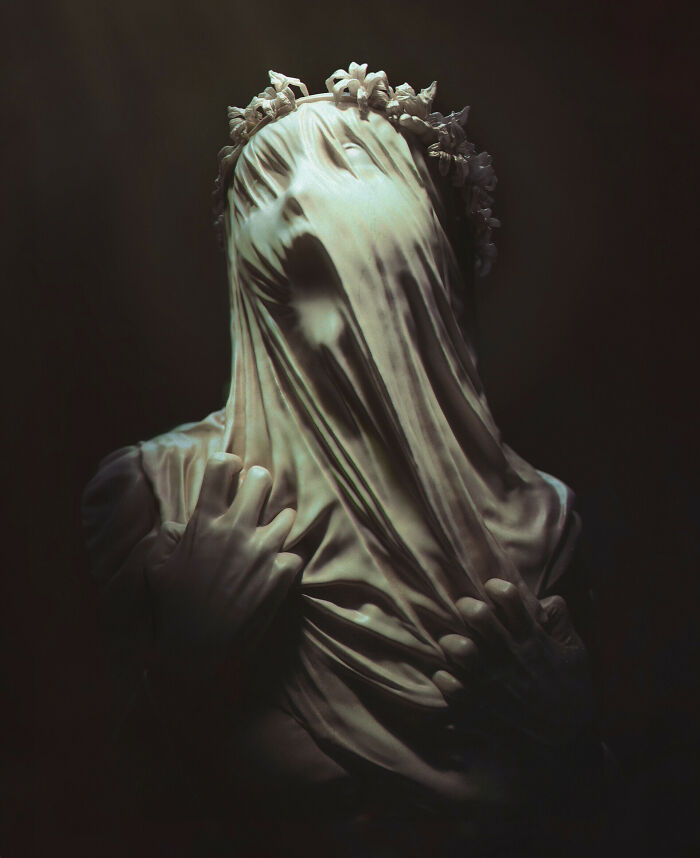

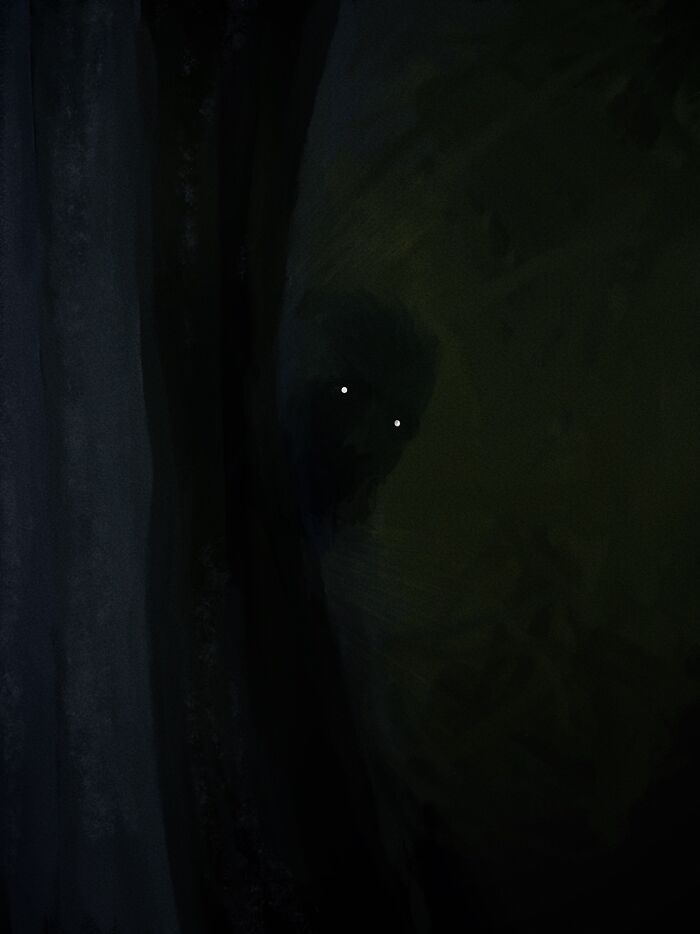
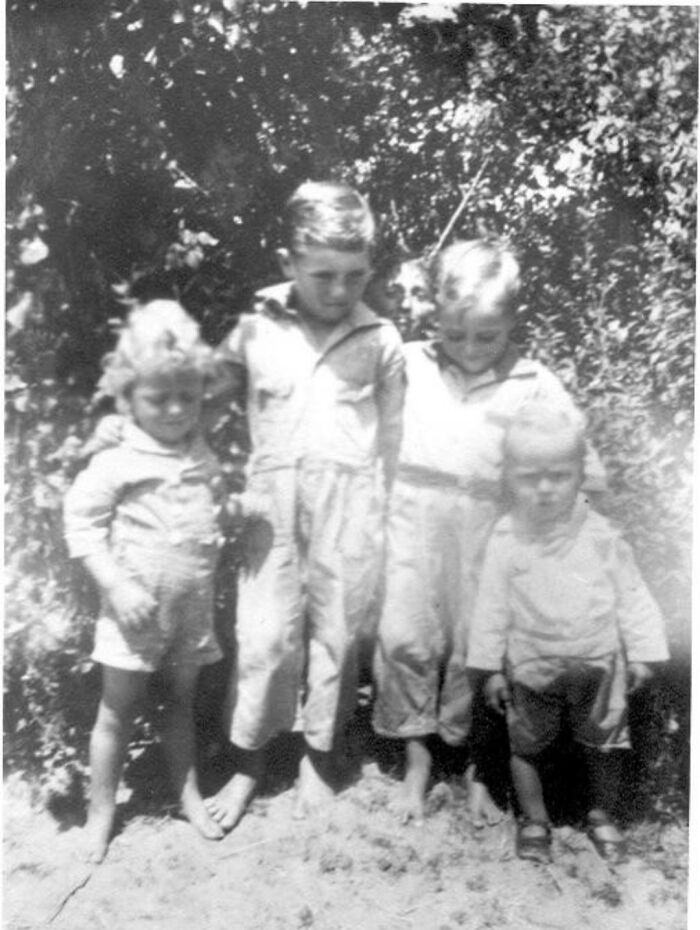
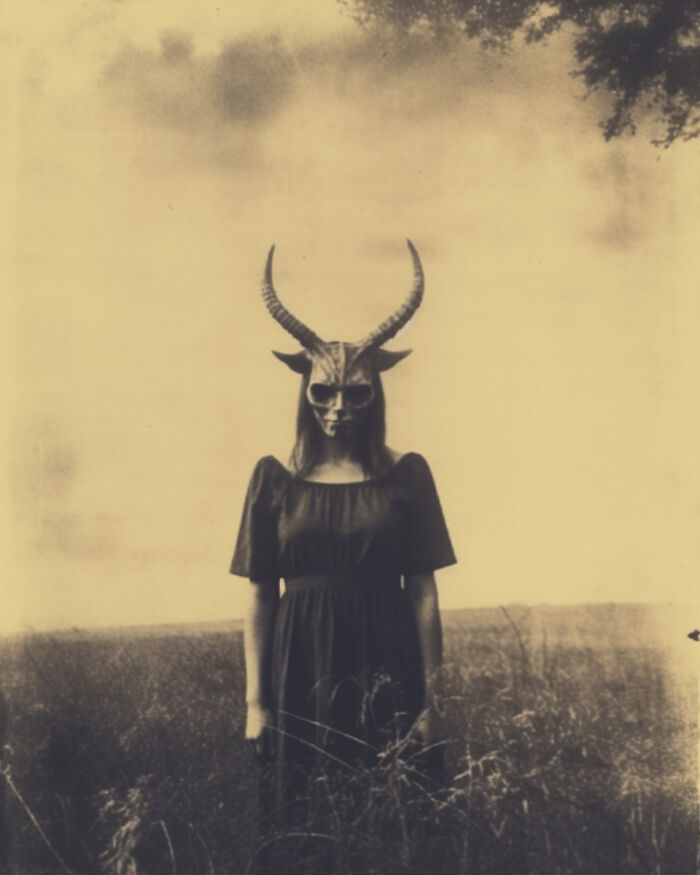
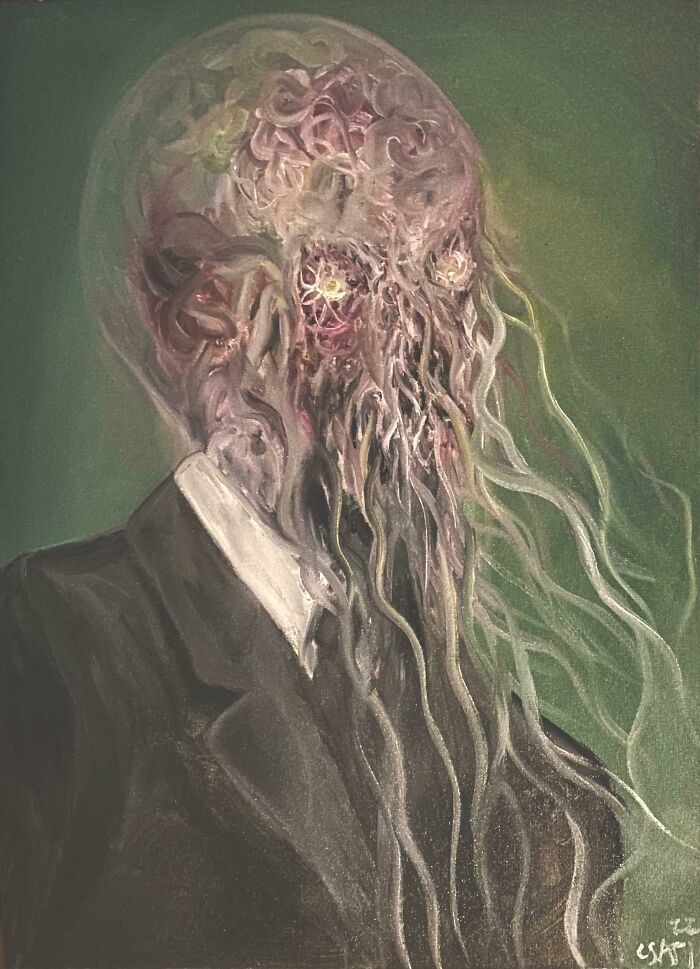
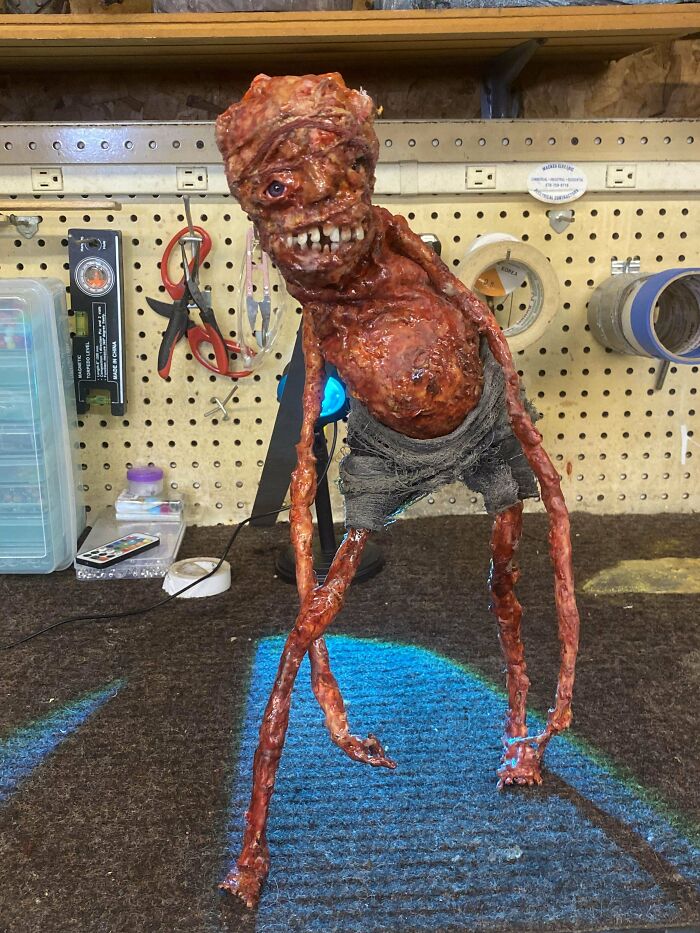




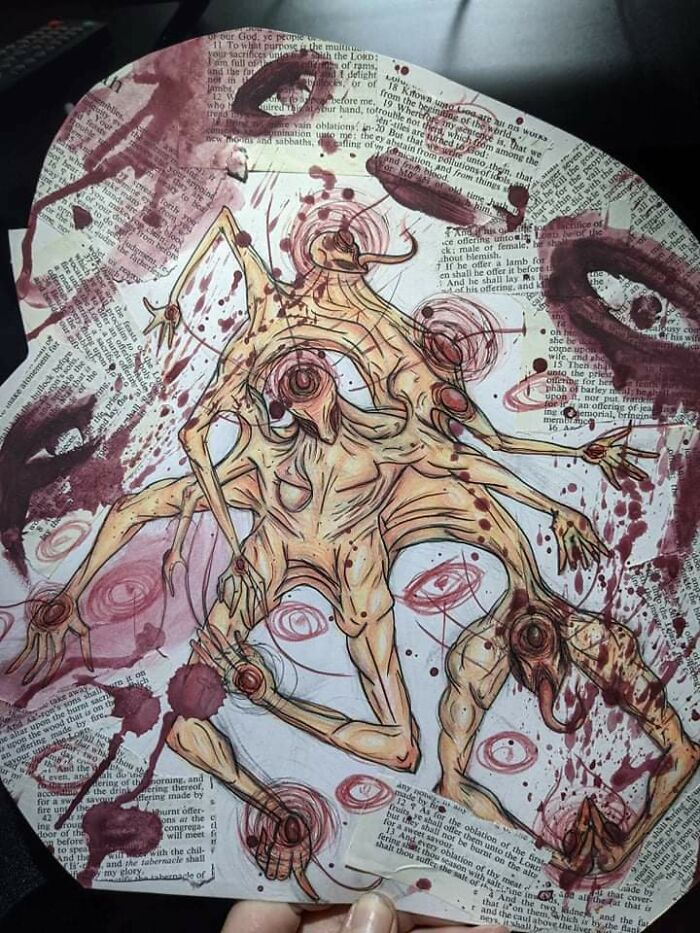
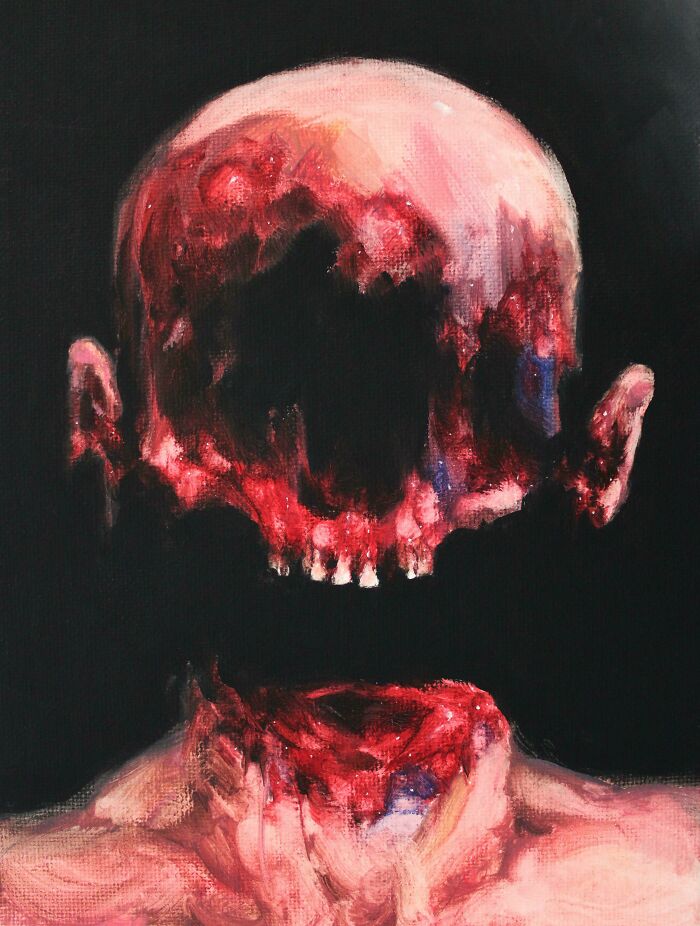
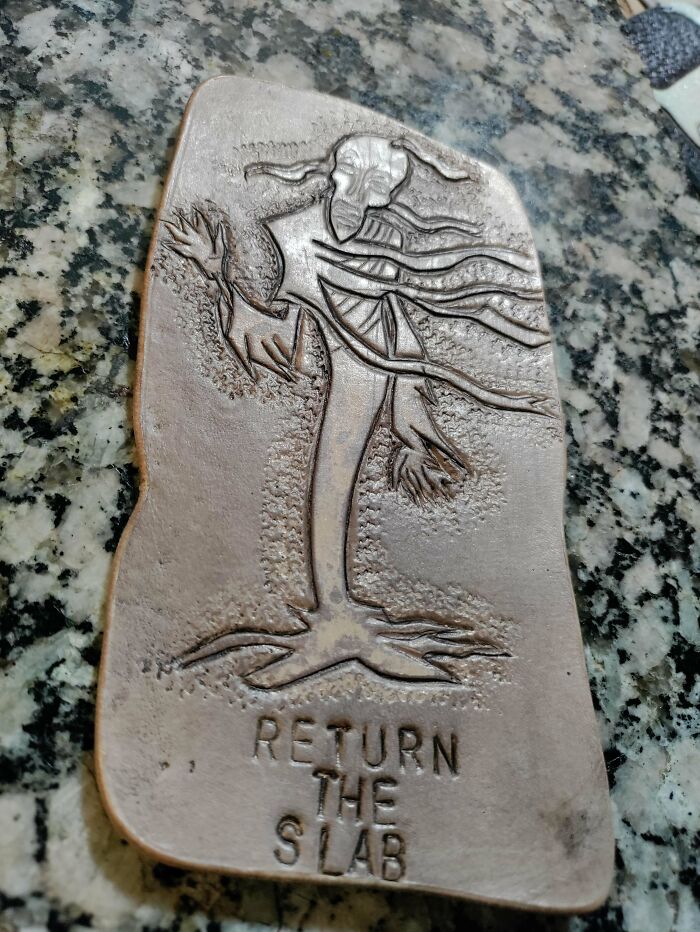
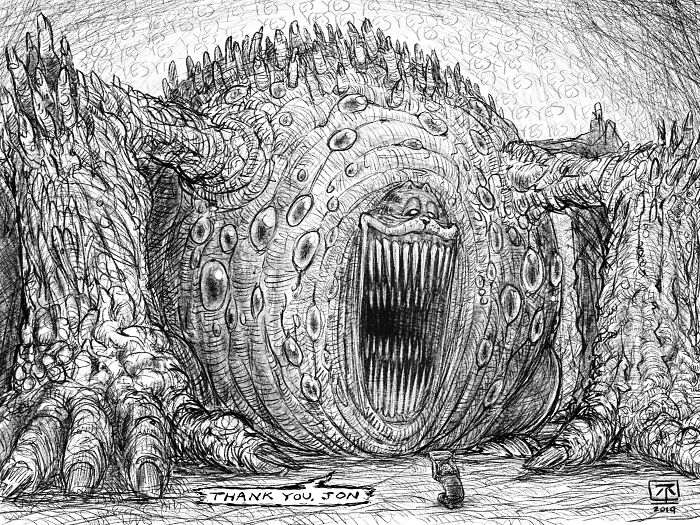
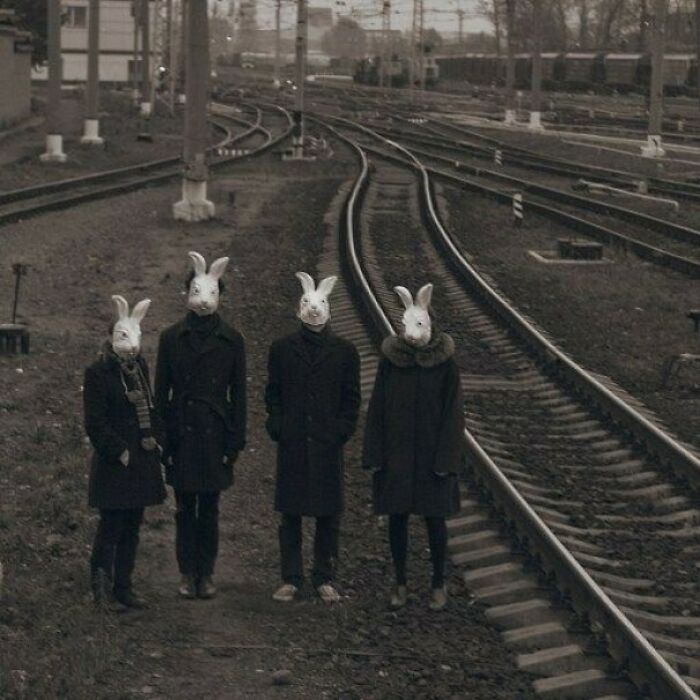
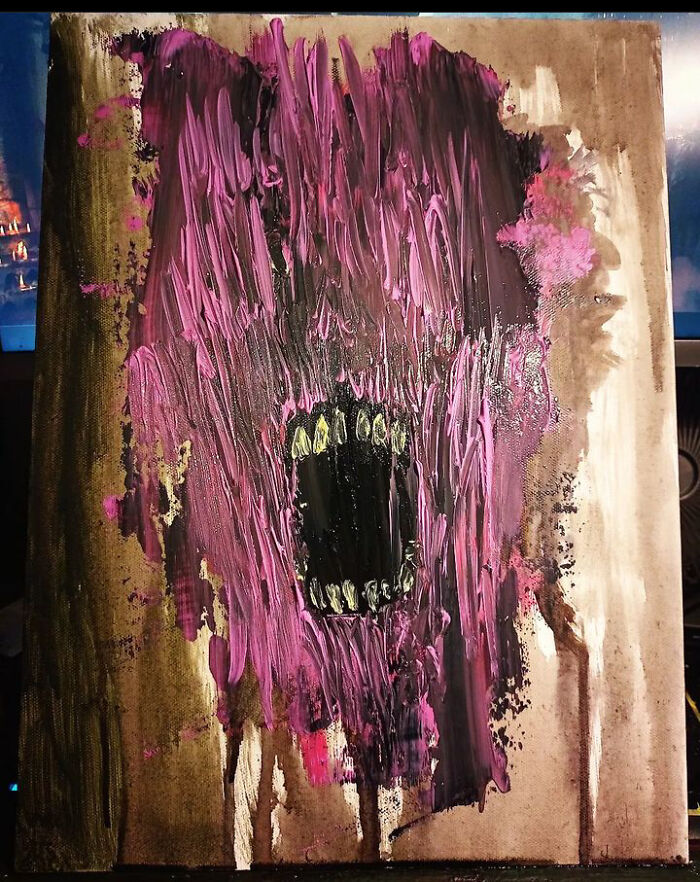
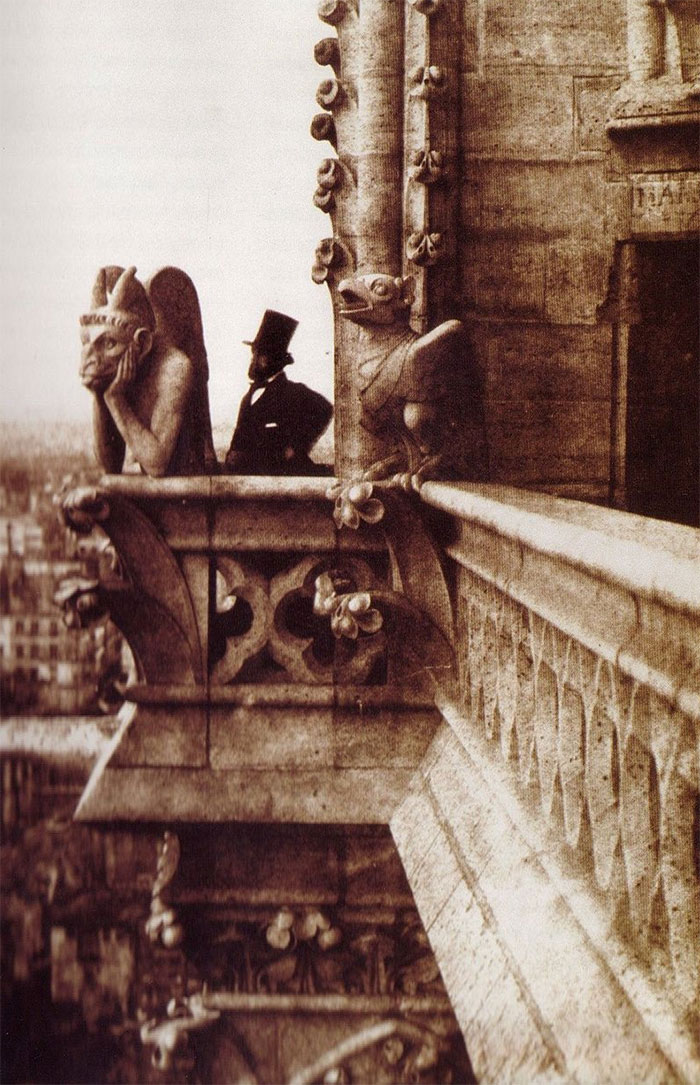
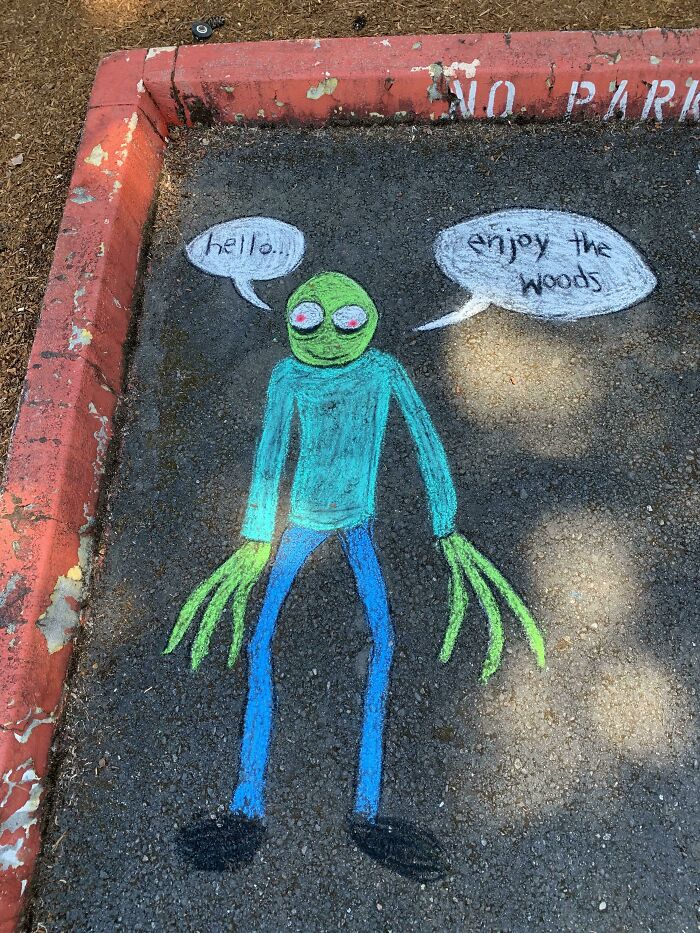




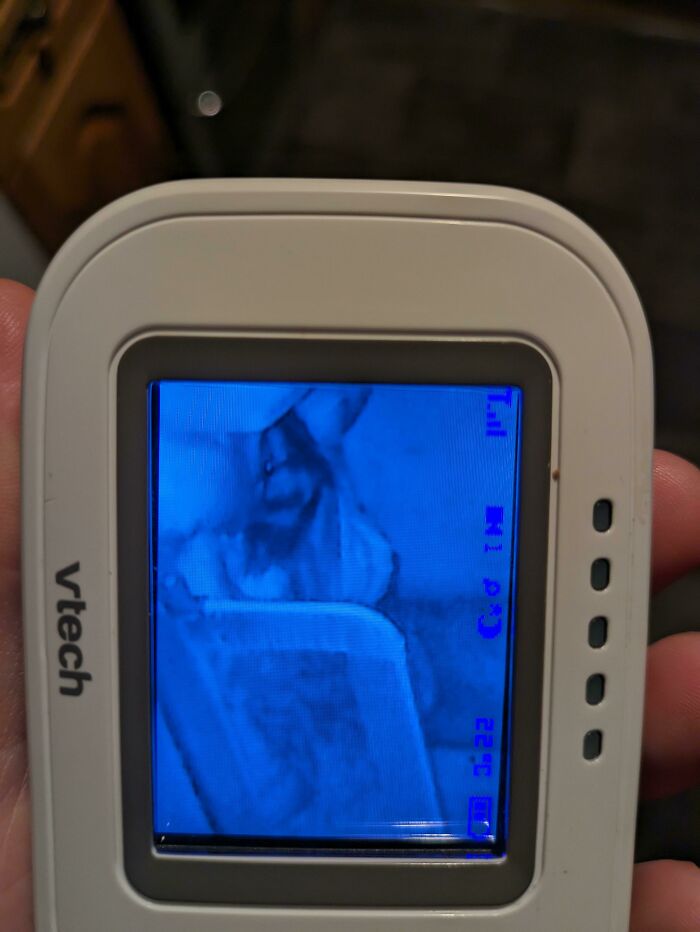
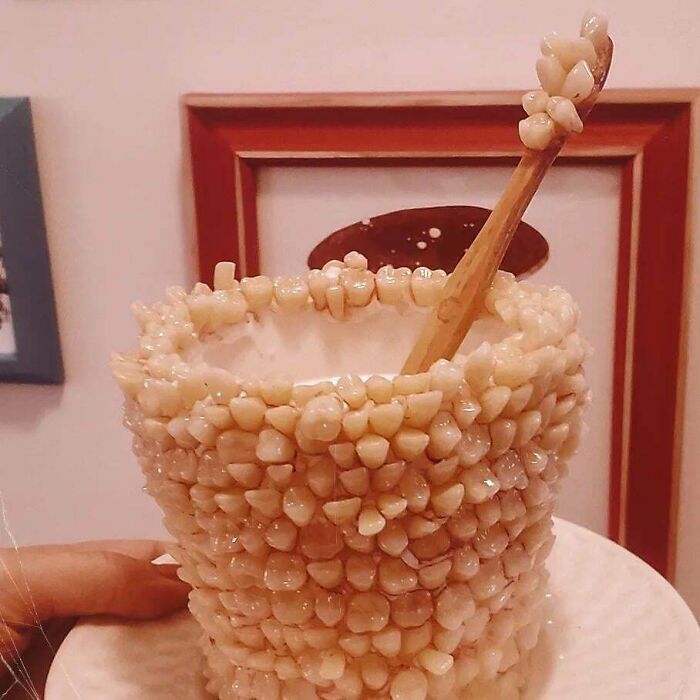
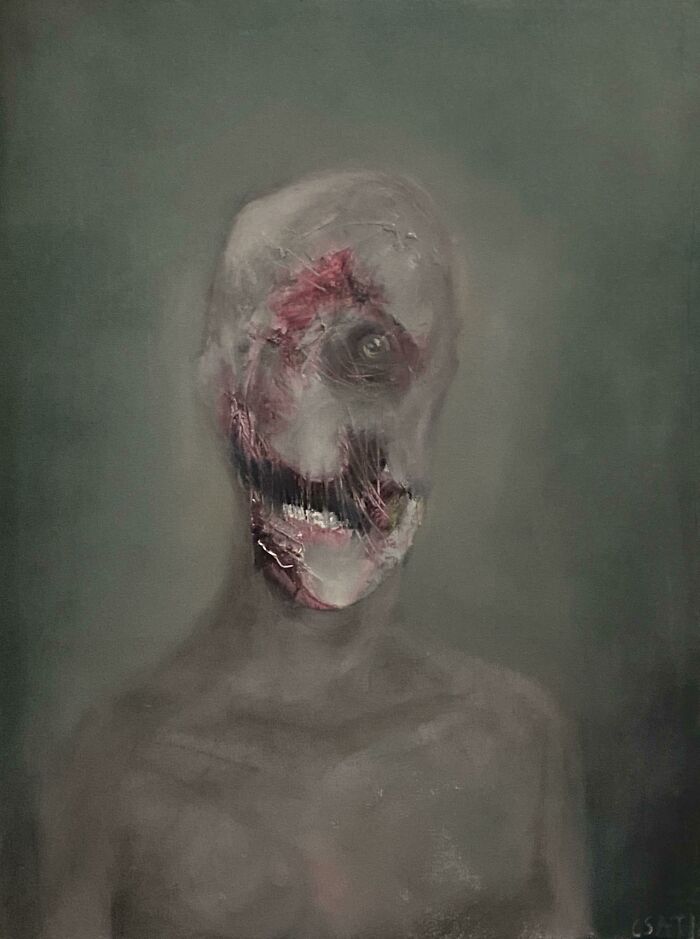
![Billy The Boxcutter [oc] Billy The Boxcutter [oc]](https://www.boredpanda.com/blog/wp-content/uploads/2023/08/64e891797d3ad_fmv8g1h5kioa1__700.jpg)

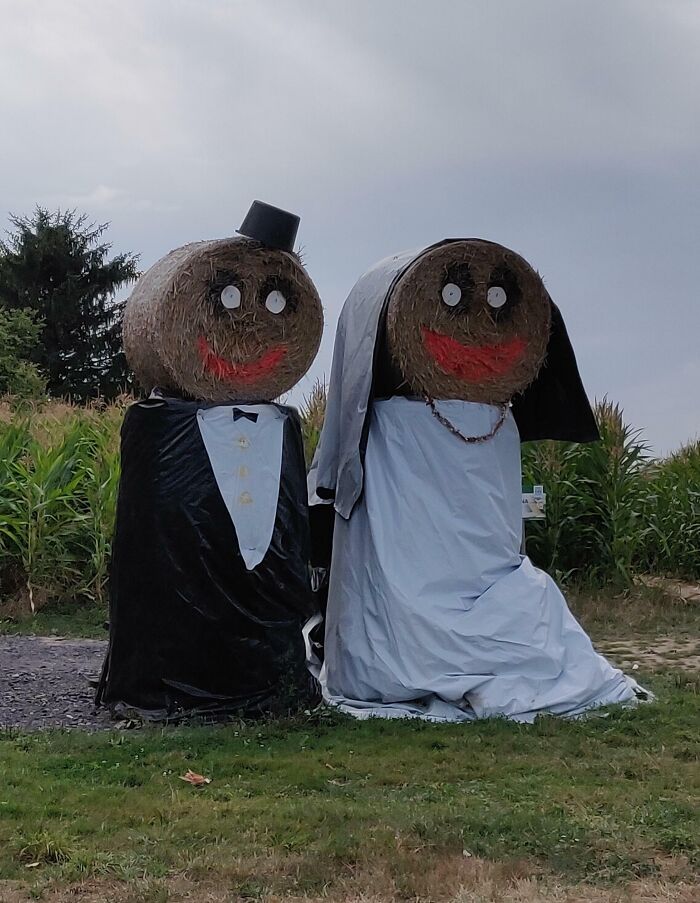
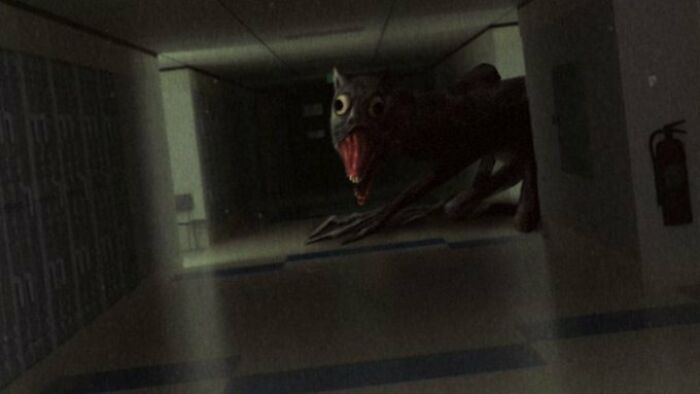
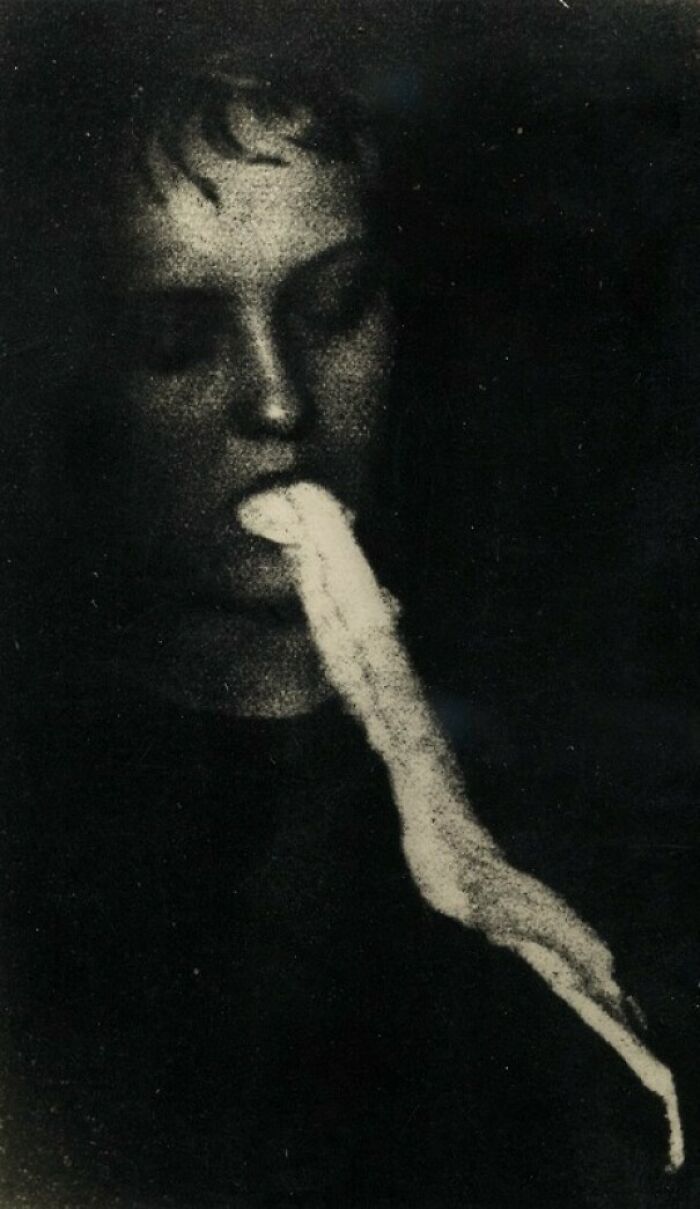




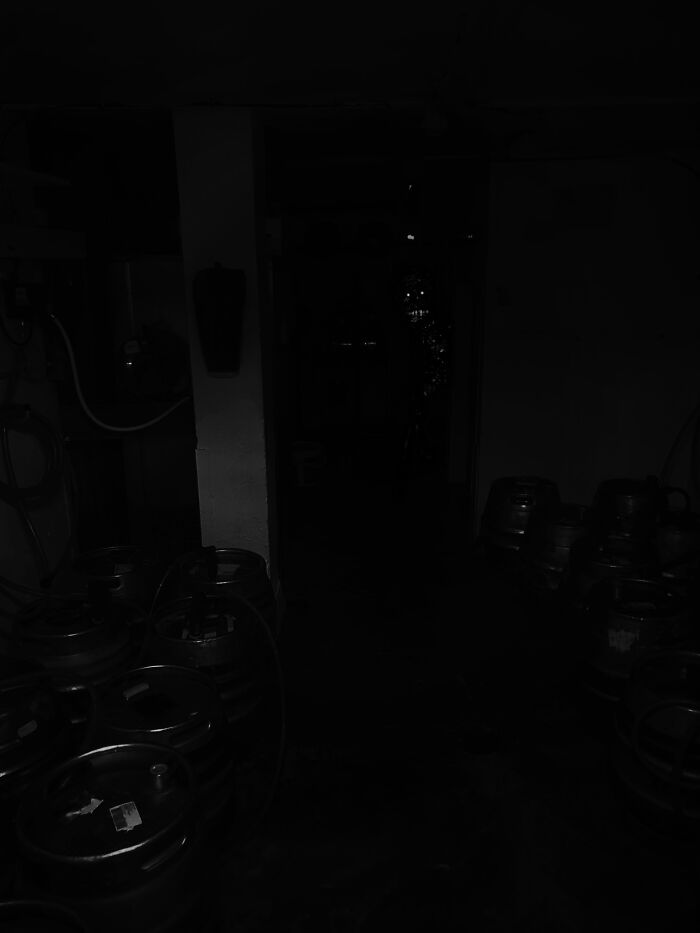
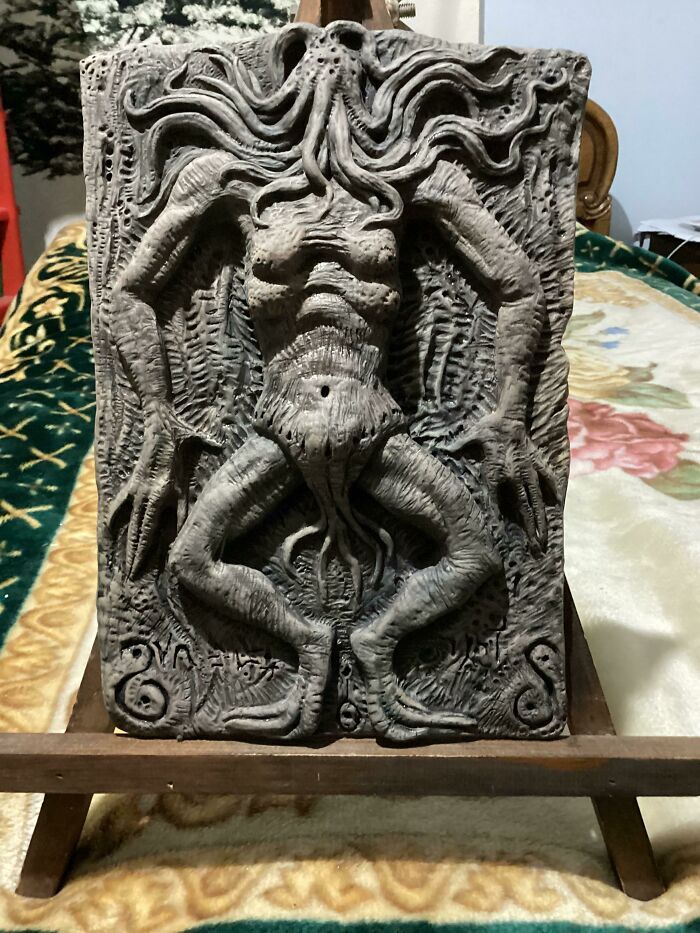
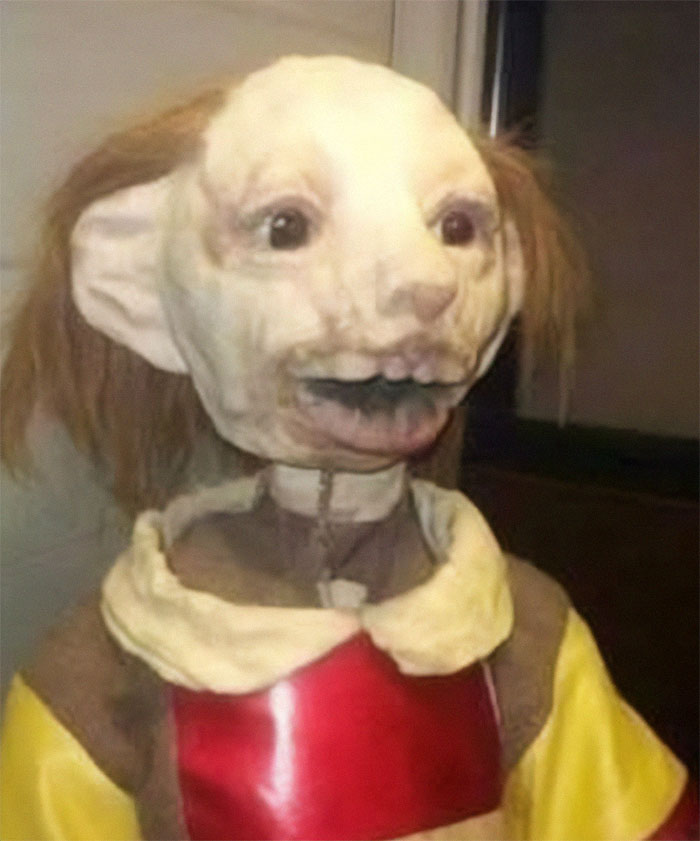
![Royal Bog Skull [oc] Royal Bog Skull [oc]](https://www.boredpanda.com/blog/wp-content/uploads/2023/08/64e8946800a71_rt4yu3w10wgb1__700.jpg)
